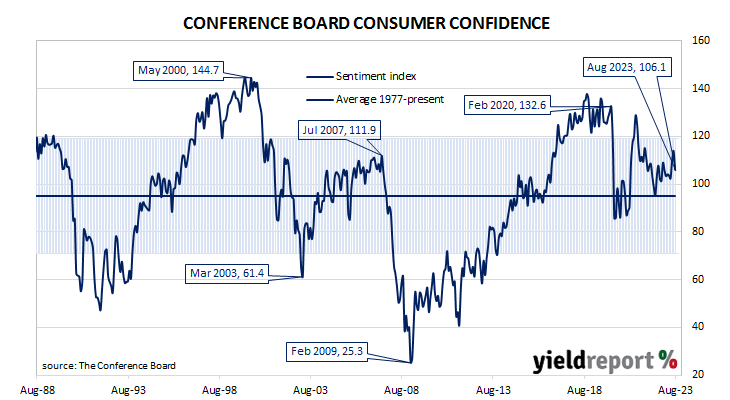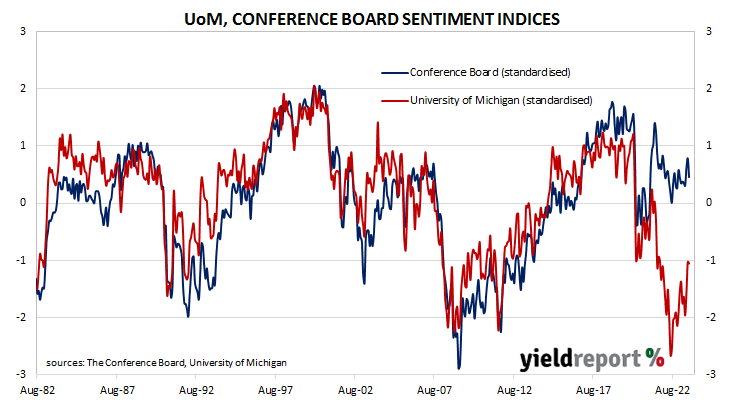Summary: Conference Board Consumer Confidence Index falls in August, reading less than expected; consumers preoccupied with rising prices, especially groceries, gasoline; views of present conditions, short-term outlook both deteriorate.
US consumer confidence clawed its way back to neutral over the five years after the GFC in 2008/2009 and then went from strength to strength until late 2018. Measures of consumer confidence then oscillated within a relatively narrow band at historically high levels until they plunged in early 2020. Subsequent readings then fluctuated around the long-term average until March 2021 when they returned to elevated levels. However, a noticeable gap has since emerged between the two most-widely followed surveys.
The latest Conference Board survey held during the first three weeks of August indicated US consumer confidence has deteriorated after improving for two consecutive months. August’s Consumer Confidence Index registered 106.1 on a preliminary basis, well below the generally-expected figure of 116.6 as well as July’s final figure of 117.0.
“August’s disappointing headline number reflected dips in both the current conditions and expectations indexes,” said Dana Peterson, Chief Economist at The Conference Board. “Write-in responses showed that consumers were once again preoccupied with rising prices in general, and for groceries and gasoline in particular.”
The figures were released on the same day as the latest JOLTS report and US Treasury yields finished the day significantly lower, especially at the short end of the curve. By the close of business, the 2-year Treasury bond yields had shed 15bps to 4.90%, the 10-year yield had lost 9bps to 4.12% while the 30-year yield finished 5bps lower at 4.23%.
In terms of US Fed policy, expectations of a lower federal funds rate in 2024 hardened. At the close of business, contracts implied the effective federal funds rate would average 5.34% in September, slightly above the current spot rate, and then average 5.365% in October. December futures contracts implied a 5.45% average effective federal funds rate while August 2024 contracts implied 4.82%, 51bps less than the current rate.
Consumers’ views of present conditions and of the near-future both deteriorated. The Present Situation Index decreased from July’s revised figure of 153.0 to 144.8 while the Expectations Index decreased from 88.0 to 80.2.
The Consumer Confidence Survey is one of two widely followed monthly US consumer sentiment surveys which produce sentiment indices. The Conference Board’s index is based on perceptions of current business and employment conditions, as well as respondents’ expectations of conditions six months in the future. The other survey, conducted by the University of Michigan, is similar and it is used to produce an Index of Consumer Sentiment. That survey differs in that it does not ask respondents explicitly about their views of the labour market and it also includes some longer-term questions.



